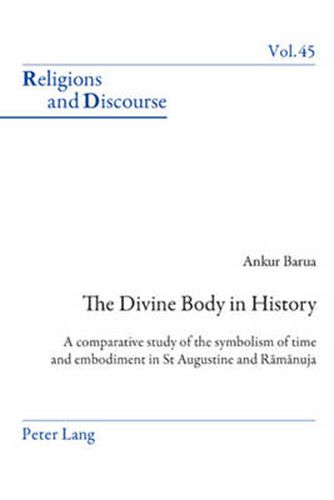Readings Newsletter
Become a Readings Member to make your shopping experience even easier.
Sign in or sign up for free!
You’re not far away from qualifying for FREE standard shipping within Australia
You’ve qualified for FREE standard shipping within Australia
The cart is loading…






This is a study in the field of comparative philosophy of religion. It initiates a dialogue between St Augustine and Ramanuja by focusing on two central themes - time and embodiment - that play a crucial role in their thought. The elaborations of these two themes by St Augustine and Ramanuja have continued to exert a tremendous influence on the histories of European thought and of Hindu movements centred around the notion of bhakti. The examination of the symbolism through which these thinkers articulate their understanding of time and embodiment also challenges certain stereotypes related to classical Indian thought and Latin Christendom, such as the former’s lack of historical consciousness and the latter’s denigration of the human body. This study shows how the ‘west’ and ‘east’ have traditionally engaged with concepts such as temporality, progress and the metaphysical status of finite and bio-physical reality.
$9.00 standard shipping within Australia
FREE standard shipping within Australia for orders over $100.00
Express & International shipping calculated at checkout
This is a study in the field of comparative philosophy of religion. It initiates a dialogue between St Augustine and Ramanuja by focusing on two central themes - time and embodiment - that play a crucial role in their thought. The elaborations of these two themes by St Augustine and Ramanuja have continued to exert a tremendous influence on the histories of European thought and of Hindu movements centred around the notion of bhakti. The examination of the symbolism through which these thinkers articulate their understanding of time and embodiment also challenges certain stereotypes related to classical Indian thought and Latin Christendom, such as the former’s lack of historical consciousness and the latter’s denigration of the human body. This study shows how the ‘west’ and ‘east’ have traditionally engaged with concepts such as temporality, progress and the metaphysical status of finite and bio-physical reality.